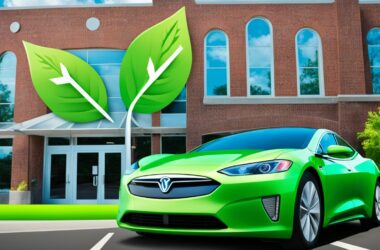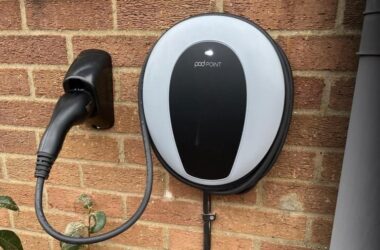Introduction
Are you hesitant to switch to an electric vehicle (EV) due to concerns about range anxiety? You’re not alone. Many individuals are curious about the capabilities of EVs and their range on a single charge. However, recent advancements in EV technology have alleviated these concerns, leading to a significant increase in EV sales. Let’s delve into the history of EV ranges and explore why range anxiety is no longer a major issue.
1. Evolution of EV Ranges
Historical Milestones
The journey of electric vehicles dates back nearly 200 years, with Robert Davidson’s creation of the first electric car in 1841, capable of traveling 1.5 miles. Fast forward to recent history, General Motors’ EV1, produced between 1996 and 1999, boasted a range of 70 miles. While groundbreaking at the time, EV1 had limitations, notably its two-seat configuration.
Modern Progress
Today, a myriad of companies are developing cutting-edge EVs with vastly improved ranges. Modern EVs can achieve over 100 miles on a single charge, with top-range models exceeding 250 miles. Remarkably, upcoming vehicles like the Mercedes EQE SUV promise ranges of up to 400 miles, showcasing the industry’s continuous advancement. Additionally, companies like Aptera Motors are pushing boundaries with solar electric cars boasting an unprecedented 1000 miles range.
2. Tips to Enhance Electric Car Range
Factors Affecting Range
Aside from battery size and vehicle brand, several factors influence an EV’s range. These include:
- Vehicle Weight: Removing unnecessary weight can improve mileage.
- Tire Pressure: Properly inflated tires reduce friction, enhancing performance.
- Climate Control: Preheating or precooling the vehicle while charging minimizes power usage.
- Temperature: Parking in a garage helps maintain battery efficiency, especially in extreme temperatures.
- Driving Speed: Constant high speeds drain the battery faster, reducing range.
Following these tips ensures efficient daily commuting, particularly since the majority of UK travel distances fall under 10 miles per day.
3. Charging Solutions for EV Owners
Home Charging Solutions
Wall-mounted chargers like evec’s 7.4kW VEC03 can fully charge vehicles like the Nissan Leaf in 6 hours, offering convenience and affordability for daily use. Alternatively, evec’s 22kW pedestal charger can achieve the same in just 2 hours, catering to businesses and public spaces.
Government Initiatives
The Department for Transport’s plan to install 300,000 public EV chargers nationwide by 2030 aims to enhance accessibility. Public charging points offer numerous benefits, including:
- Convenience: Charging while away from home reduces range anxiety.
- Extended Range: More charging points facilitate longer trips without worrying about running out of charge.
- Environmental Impact: Encouraging EV adoption contributes to reduced emissions and improved air quality.
- Economic Growth: Charging infrastructure creates job opportunities and supports local businesses.
Conclusion
The evolution of electric vehicles has transformed the automotive landscape, making range anxiety a thing of the past. With advancements in technology and infrastructure, EVs offer practical and sustainable mobility solutions. As the industry continues to innovate, the future of electric transportation looks brighter than ever.
Embrace the future of mobility with electric vehicles, where range anxiety is no longer a barrier but a relic of the past.










